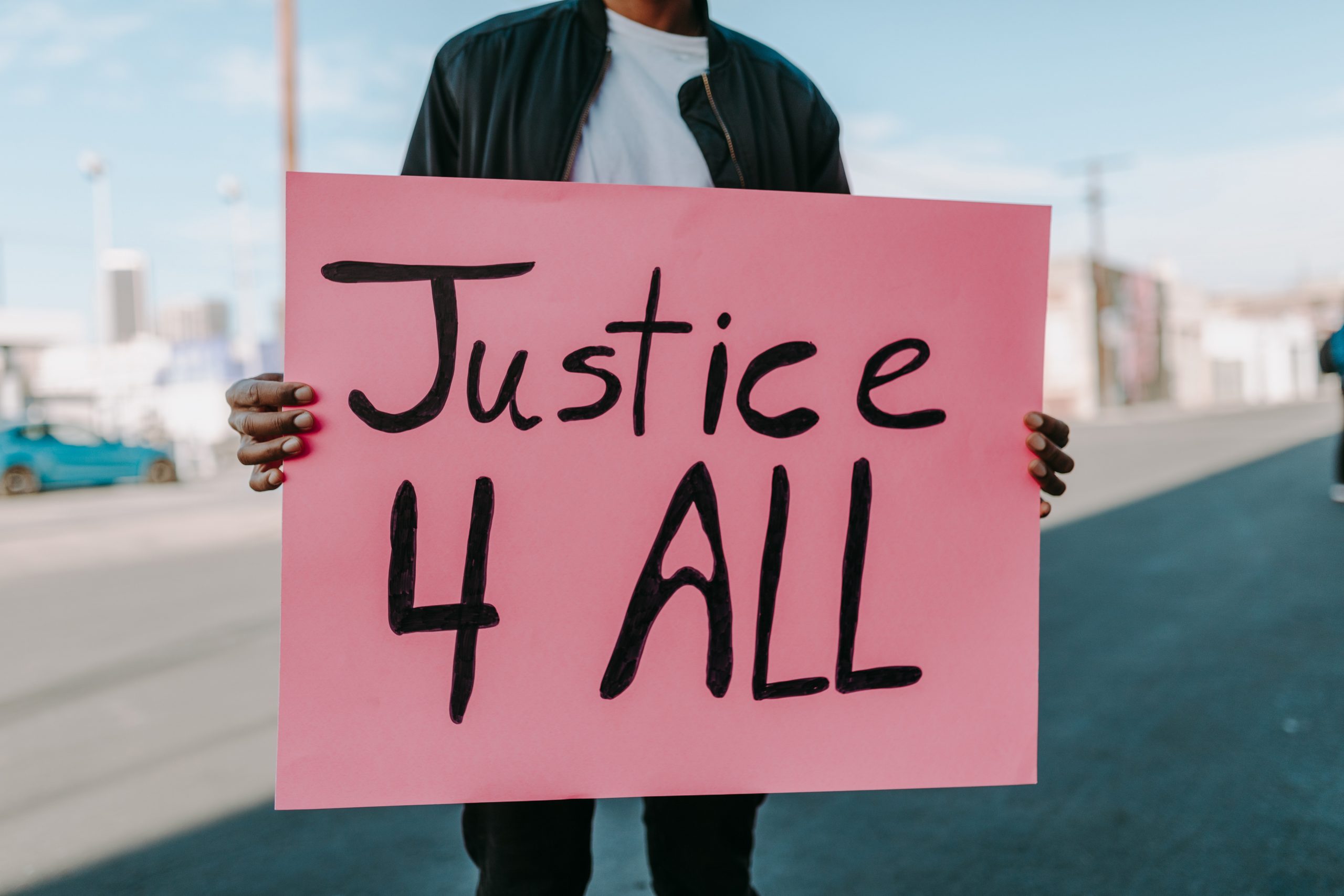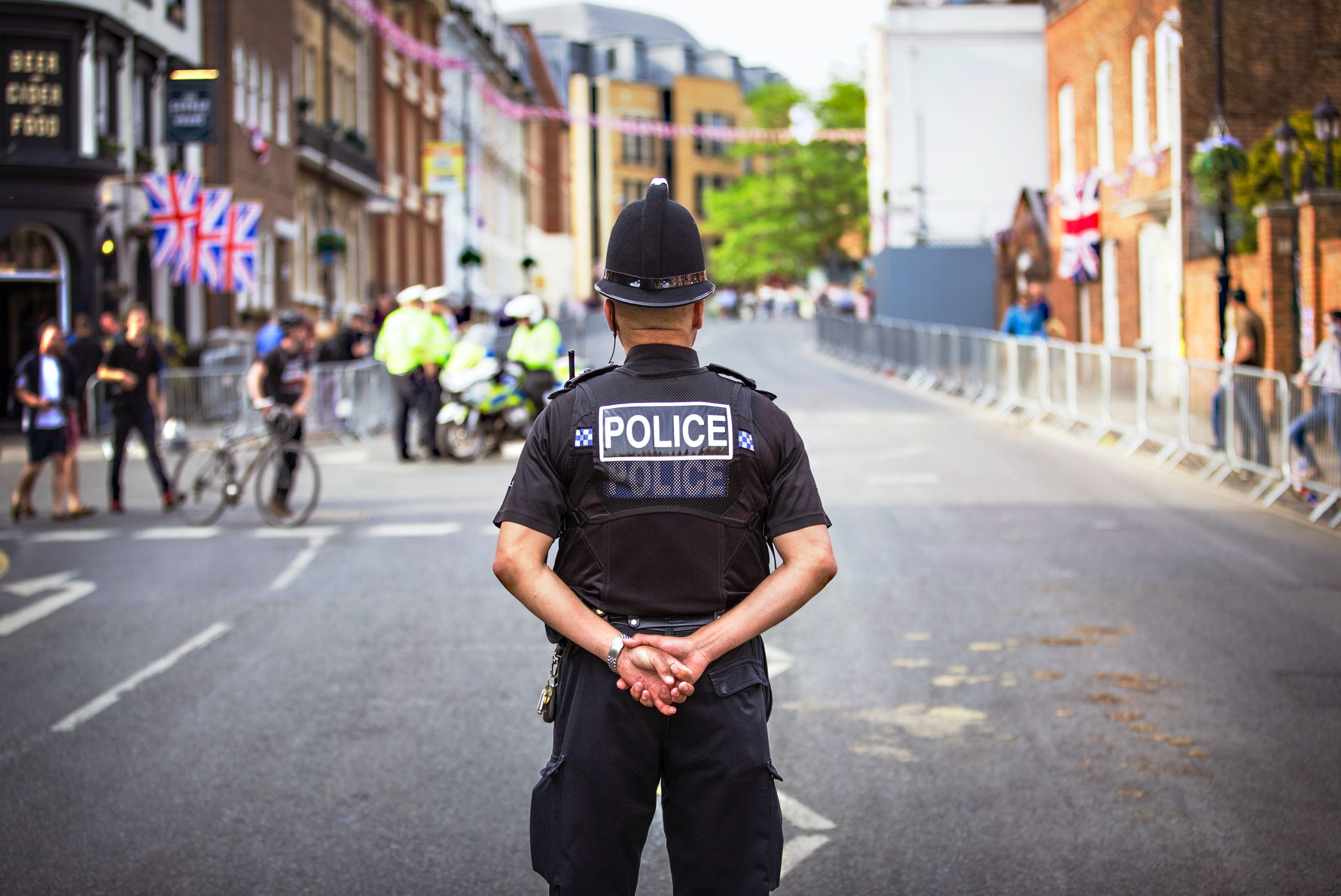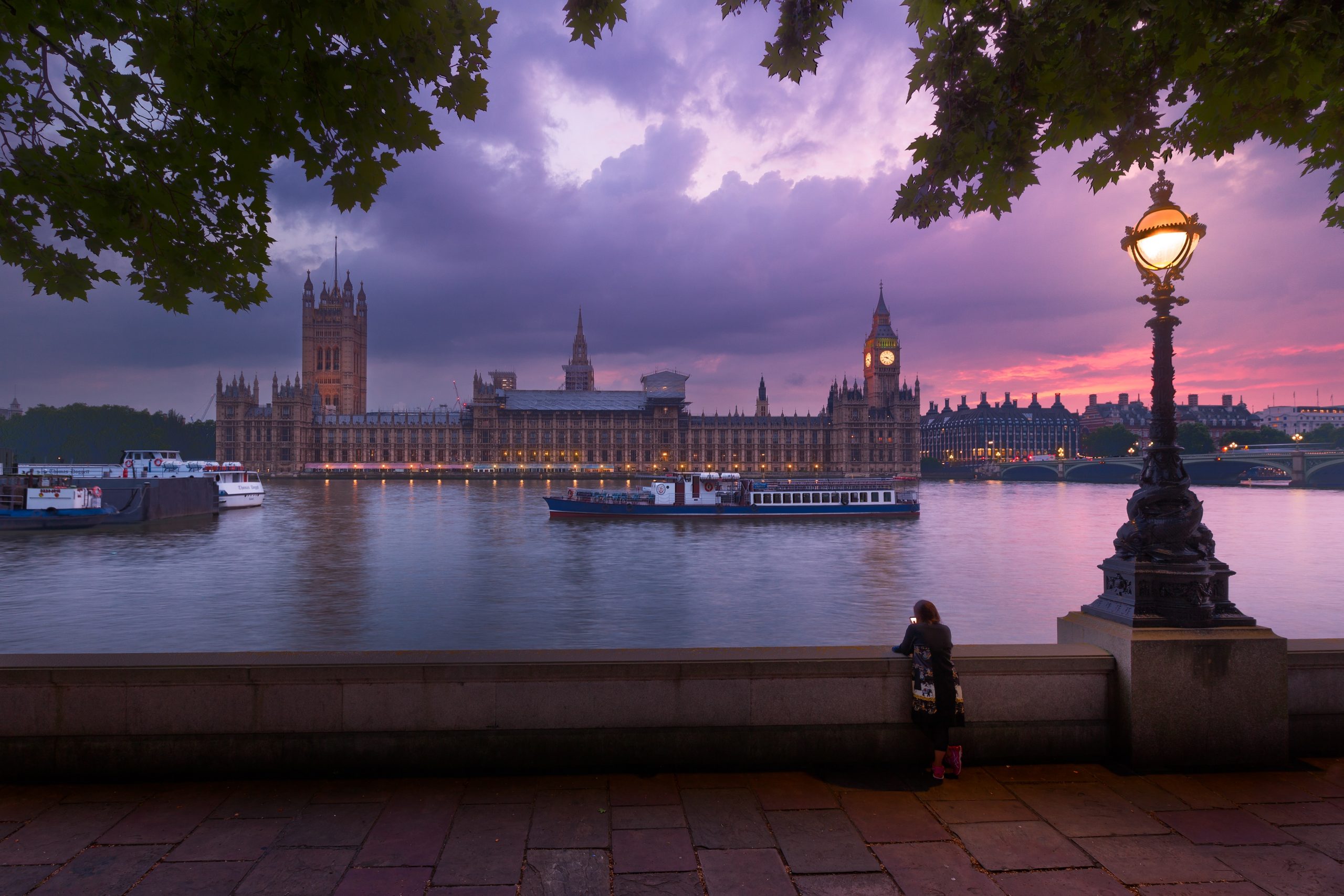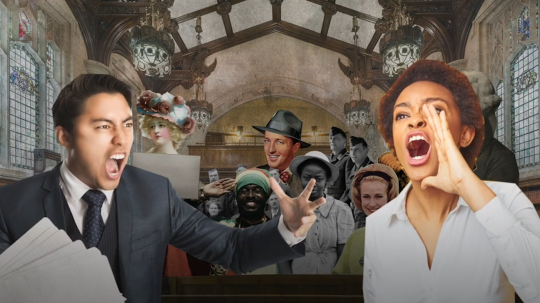In every parliamentary session, Bills are introduced to make incremental or monumental changes to the legal framework within which our society functions. This year, several significant pieces of legislation have encroached on our human rights. To wrap up 2021, we have broken them down for you.
Numerous Bills introduced or passed over the last year pose a threat to our human rights. We have narrowed them down to the eight most rights-reducing pieces of legislation that have been passed by – or are still passing through – the UK Parliament in Westminster.
Judicial Review and Courts Bill (JRCB)

Credit: Tingey Injury Law Firm / Unsplash
The JRCB has garnered press attention due to its potential to scale back citizens’ rights. Judicial review is a crucial process that enables people to secure redress following unlawful decisions and actions by the state. Essentially, it allows the public through the courts to audit the legality of decisions made by the government – national, regional or local – and by public bodies more generally. It constitutes a safeguard against the abuse of state power.
In 2020, the government convened an independent panel to examine the case for reforming judicial review powers and it is now forging ahead with pushing through such modifications, despite the panel cautioning against any radical reform.
The Bill proposes multiple amendments to the current methods of judicial review, including giving the court discretion to determine how it makes a ‘quashing order’, which is delivered in cases where it has been determined that a statutory body’s decision or instrument is unlawful. The Bill would allow the court temporarily to suspend such an order, giving the public body a chance to correct any failures identified .
Generally, the Bill claims to ‘rebalance’ government’s relationship with judges and the courts. However, critics have argued that the Bill is attempting to solve a nonexistent problem and the proposed reforms also mean that public bodies who have broken the law may not have to correct their unlawful actions quickly.
Current status: The Bill is in the report stage in the House of Commons.
Higher Education (Freedom of Speech) Bill (HEB)

Credi: Sidharth Bhatia / Unsplash
The HEB has attracted widespread controversy for its attempts to protect freedom of expression by preventing universities from barring potentially harmful speakers from campuses.
Proposed as a protective instrument to shield the right to freedom of expression from erosion, the Bill states that it will require universities to have a “particular regard to the importance of free speech”. Critics of the Bill fear that it will endanger another right enshrined in the Human Rights Act (HRA) – the right to freedom from discrimination.
The government stated that the Bill was motivated by a “growing chilling effect on campuses”, alleging that some people feel silenced or censored by no-platforming and similar tactics. Research by the Office for Students (OFS) revealed that, of 59,574 events proposed at higher education institutions in the year 2017/18, only 53 speaking engagements were refused, making the practice relatively rare.
Current status: The Bill is in the report stage in the House of Commons.
Assisted Dying Bill (ADB)

Credit: Laura James / Pexels
Introduced as a Lord’s Private Members’ Bill, the ADB proposes paving the way for legalising assisted death for terminally ill people.
If passed, it would legalise assisted death for terminally ill, mentally competent adults in the final months of their lives. It would follow similar approaches to other countries and states who have already legalised assisted dying.
The Bill would require stringent oversight and anyone wishing to end their life would require approval from two independent doctors and a High Court judge. They must also be over 18, terminally ill with six months or less to live and deemed fully mentally competent.
Although welcomed in some circles, critics of the Bill fear that it could be manipulated to allow family members to dictate when a terminally ill patient dies, not the patient themselves. If used recklessly, the Bill could pose a threat to people’s right to life, protected under Article 2 of the Human Rights Act.
Current status: The Bill started in the House of Lords and is currently in the report stage.
Online Safety Bill (OSB)

Credit: Andrea Piacquadio / Pexels
The OSB was introduced in an effort better to protect people’s safety online. However, some are worried that its introduction could see the beginning of a dictatorial approach to internet access.
Aimed at pressuring social media networks to shoulder more responsibility for harm caused on their sites, the OSB would enforce high standards on social networks. Those who do not adhere to the new rules could face legal redress.
For example, the government would be empowered to take action against a social networking site that claimed to be child friendly but failed to remove harmful imagery from its online environment. Only the larger social media networks would be required to abide by these regulations.
Ofcom has been named as the regulator of the new rules and would be in charge of ensuring networks follow UK law. However, the vagueness of the Bill has been criticised for its potential to be misinterpreted. There is also some concern that the Bill has the power to limit people’s freedom of expression online, which would endanger another right protected under the HRA.
Current status: Still in draft stages, the Bill was recently reviewed by a Joint Committee.
Elections Bill (EB)

Credit: Element5 Digital / Unsplash
The EB seeks to alter the administration and conduct of elections. According to the government’s website, the Bill will include provisions “designed to strengthen the integrity of the electoral process”.
The Bill would require voters to show photographic ID for UK parliamentary elections in Great Britain and for local elections in England. Those who are opposed to the Bill argue that it is an unnecessary addition to electoral legislation because electoral fraud, and other election malpractices, are rare in the UK.
Access to free elections is enshrined by the Human Rights Act in Article 3 of the first protocol. As many people in Great Britain do not have the necessary ID, passing the Bill could infringe on this right.
The Bill also proposes new rules for postal and proxy votes, a new punishment for intimidatory behaviour associated with elections and additional powers for the Electoral Commission. On the contentious subject of ID, a government factsheet on the Bill stated: “A broad range of documents will be accepted, including passports, driving licences, various concessionary travel passes and photocard parking permits issued as part of the Blue Badge scheme.”
Current status: The Bill is in the report stage of the House of Commons.
Nationality and Borders Bill (NBB)

Credit: Rodnae Productions / Pexels
Throughout the year, the NBB has drawn attention and criticism for its approach to overhauling immigration policy in the UK.
Notably, the Bill would empower border forces to stop and redirect vessels carrying migrants out of British waters, threaten criminal charges against people who enter the UK without permission and potentially criminalise those who help asylum seekers enter the country.
The government asserts that the Bill will help them achieve three key aims: making the system fairer and more effective; deterring illegal entry into the UK; and removing people from the UK with “no right to be here”.
It will introduce harsher criminal offences for those “attempting to enter the UK illegally by raising the penalty for illegal entry from six months to four years imprisonment and introducing life sentences for people smugglers.” The Border Force will be given additional powers to search unaccompanied containers, seize and dispose of vessels intercepted, and stop and divert vessels suspected of carrying people to the UK, returning them to where their journey began.
Most recently, Clause 9 of the bill attracted outcry for introducing law that would allow the government to strip people of their British citizenship without even giving them notice. It states that citizenship can be stripped without notice if it is not “reasonably practicable” to notify the person in question, or if it is in the interest of national security, in the public interest, or in the interest of maintaining diplomatic relations.
Current status: The Bill is going through its second reading in the House of Lords.
Police, Crime, Sentencing and Courts Bill (PCSCB)

Credit: King S Church International / Unsplash
The PCSCB aims to modify rules as they relate to the police and other emergency services. The government website states that, among other proposals, will make provisions about collaboration between authorities to prevent and reduce serious violence,
Most notably, the Bill proposes legislation that could threaten the right to protest, enshrined in Article 11 of the HRA. Firstly, the Bill introduces two new offences of “locking on” and “being equipped to lock on”, which would make it a crime for a person to attach themselves, another person or an object to any other person or object or to the land in situations where the action would be capable of causing significant disruption. The Bill would make “locking on” punishable by up to 51 weeks imprisonment and/or a fine.
Additionally, the Bill would change the current punishment for obstructing a highway from a fine to up to 51 weeks in prison, a fine, or both. The Bill introduces another new offence that would make obstructing someone from carrying out construction or maintenance work to any major transport route illegal. For all new offences, there is a defence of “reasonable excuse”, but the meaning is too vague to interpret at this stage. The PCSCB expands stop and search powers for the police as well. New powers would allow police to stop and search a person or vehicle intended for use in connection with the other offences introduced in the Bill, such as obstructing the highway or major transport works, locking on or being a public nuisance.
Lastly, part 4 of the PCSCB includes a proposal to change trespassing from a civil to a criminal offence, which will threaten Gypsy and Traveller communities. This would also give the police additional powers to oversee issues associated with roadside camps. Criminalising trespass means that only one vehicle would be required to be on the land before the new powers apply and that people could face vehicle confiscation, a £2,500 fine or time in prison for trespassing.
Current status: The Bill is currently at the report stage in the House of Lords.
Covert Human Intelligence Sources (Criminal Conduct) Act (CHISA)

Credit: Dyna Wing So / Unsplash
Introduced in 2020, the CHISA gives further statutory powers to organisations, including intelligence agencies and law enforcement bodies, to authorise criminal activity by covert human intelligence sources.
Undercover operatives can play a role in keeping people safe, but critics argue the Act is heavily flawed. For example, the government resisted attempts to exclude the gravest offences from the permissions granted by the Act, meaning if an agent of the state causes death while carrying out their duties, they will not necessarily face legal redress.
Current status: The Bill received royal assent in March 2021.






